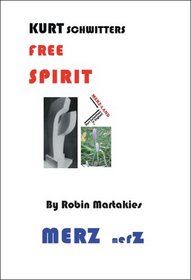Search -
Kurt Schwitters Free Spirit
Kurt Schwitters Free Spirit
Author:
The book gives a flavour of what the German artist/poet, Kurt Schwitters, achieved in his lifetime and what he meant to the people of the English Lake District and the wider world. — Born in Hanover in 1887, Schwitters fled Germany in 1937, going first to Norway, then to Britain, where he was interned for a year and a half as 'an enemy alien'. He... more »
Author:
The book gives a flavour of what the German artist/poet, Kurt Schwitters, achieved in his lifetime and what he meant to the people of the English Lake District and the wider world. — Born in Hanover in 1887, Schwitters fled Germany in 1937, going first to Norway, then to Britain, where he was interned for a year and a half as 'an enemy alien'. He... more »
ISBN-13: 9781412088459
ISBN-10: 1412088453
Publication Date: 4/21/2006
Pages: 162
Rating: ?
ISBN-10: 1412088453
Publication Date: 4/21/2006
Pages: 162
Rating: ?
0 stars, based on 0 rating
Publisher: Trafford Publishing
Book Type: Paperback
Members Wishing: 0
Reviews: Amazon | Write a Review
Book Type: Paperback
Members Wishing: 0
Reviews: Amazon | Write a Review
Genres:
- Arts & Photography >> Individual Artists >> ( S-U ) >> Schwitters, Kurt
- Biographies & Memoirs >> Arts & Literature >> Artists, Architects & Photographers
- Biographies & Memoirs >> General




